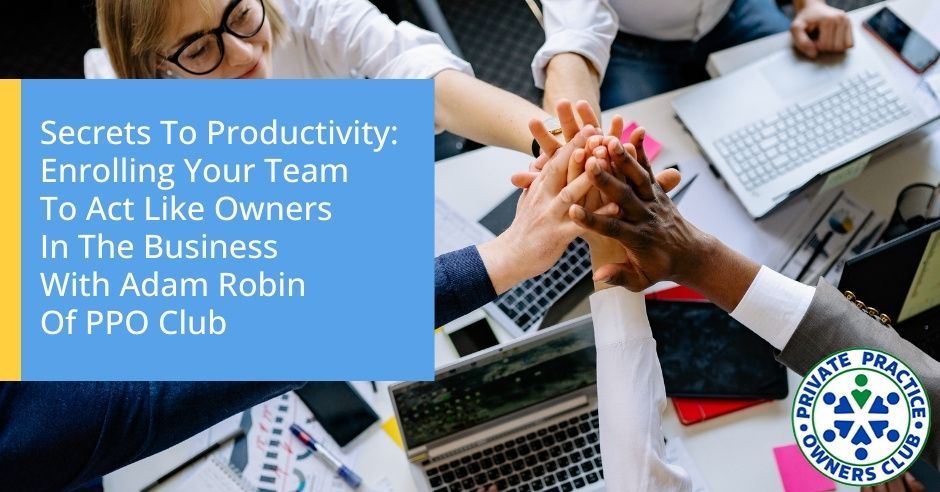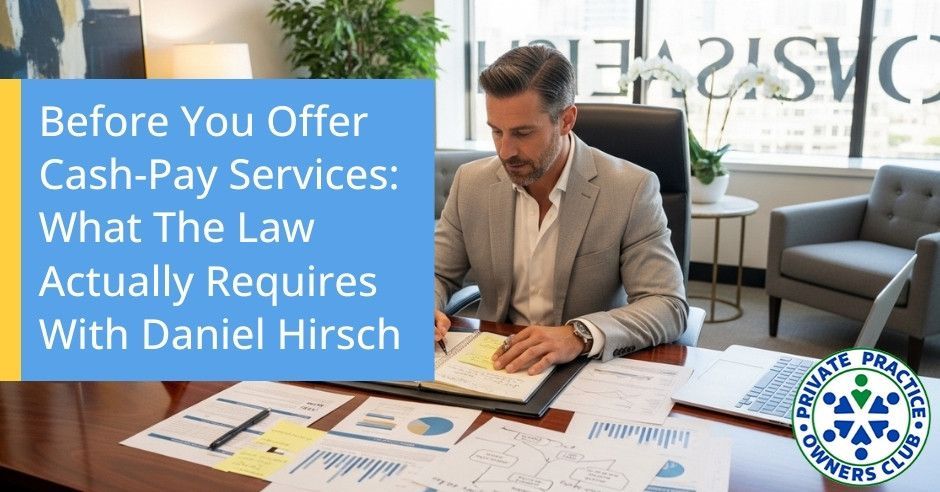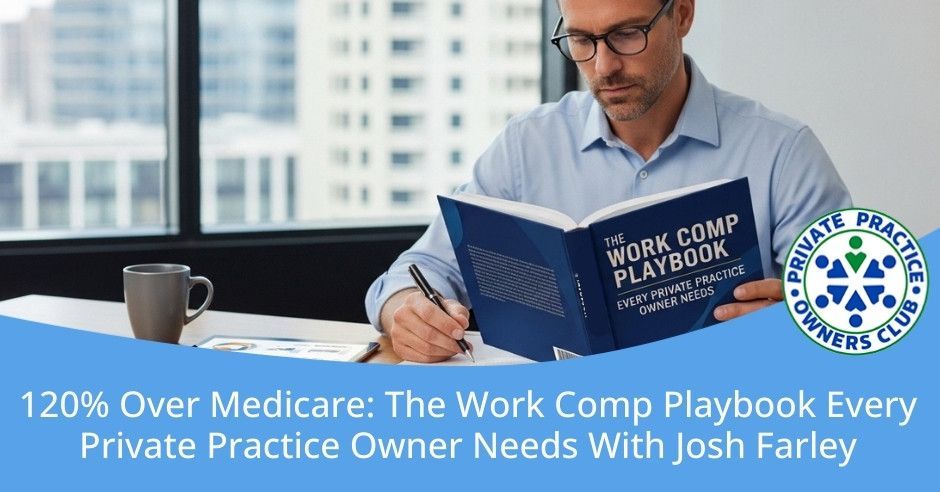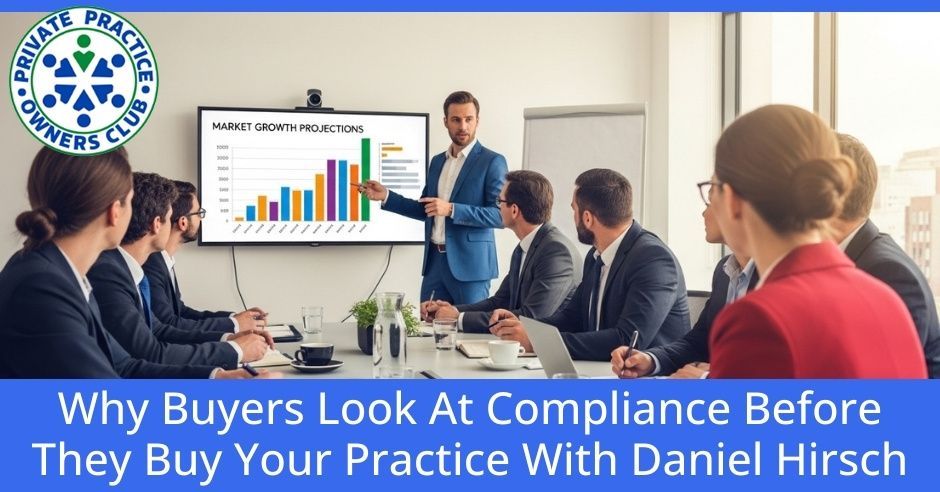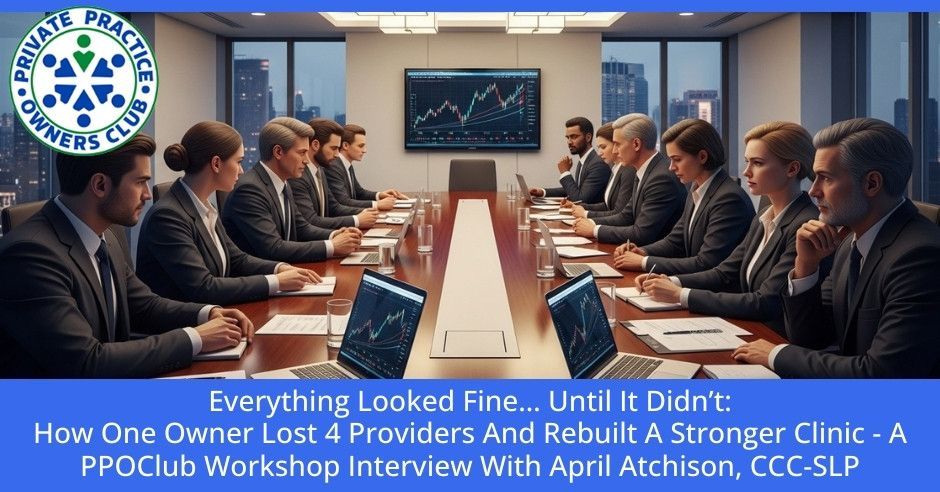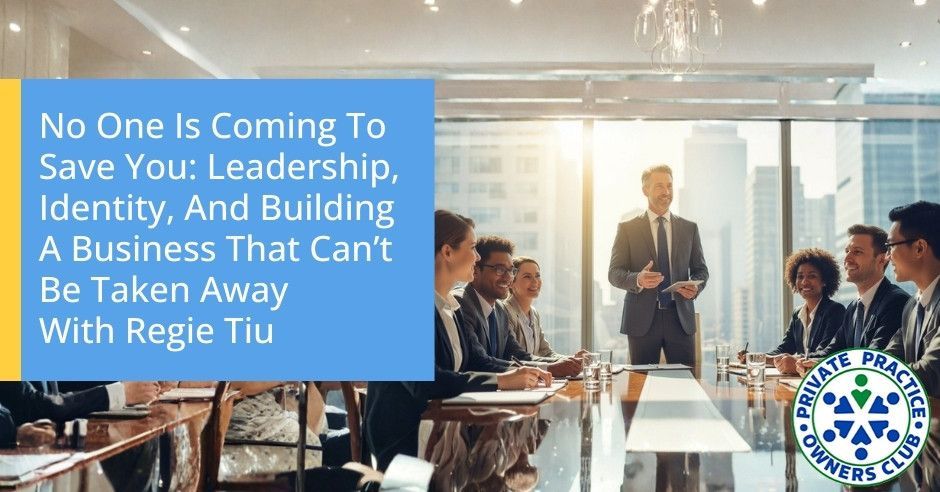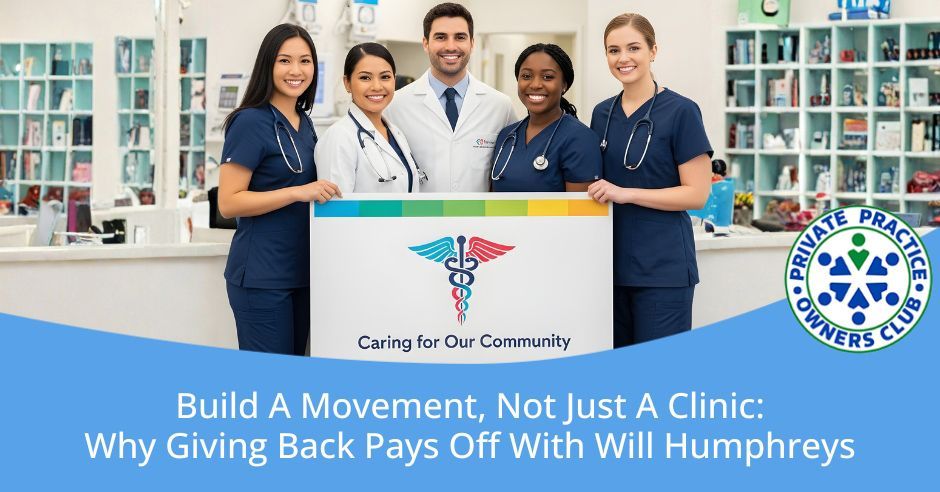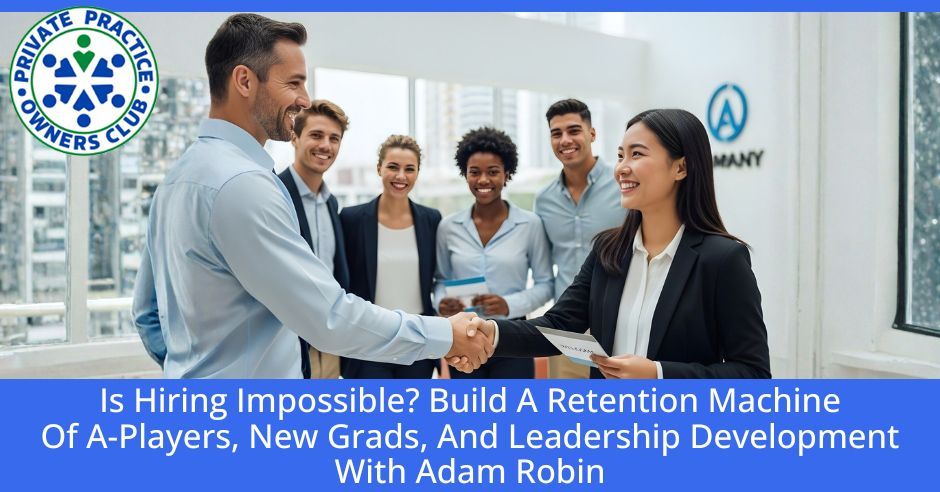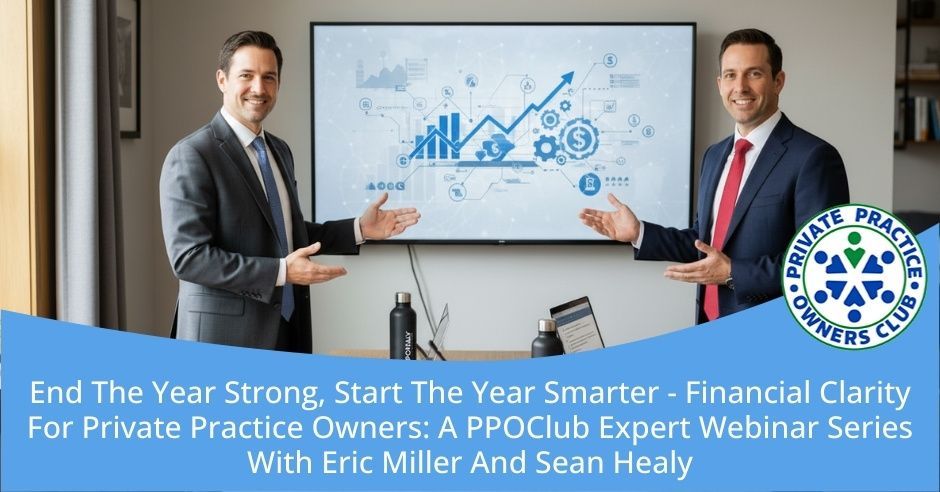Tired of being the only one who gives a damn? It’s time your team started acting like owners – not just clocking in and out. In this episode, Nathan Shields and Adam Robin break down the real reason your team isn't stepping up – and what to do about it. If you’ve been feeling like you’re dragging people uphill, doing all the work, and wondering why no one else seems to care as much… this one’s for you.
They’ll walk you through a mindset shift and a practical system that transforms 𝙟𝙪𝙨𝙩 𝙚𝙢𝙥𝙡𝙤𝙮𝙚𝙚𝙨 into true 𝐓𝐄𝐀𝐌 𝐏𝐋𝐀𝐘𝐄𝐑𝐒 who are bought in, fired up, and producing at a higher level.
Tune in and learn:
• Why 𝗹𝗲𝗮𝗱𝗶𝗻𝗴 𝗯𝘆 𝗲𝘅𝗮𝗺𝗽𝗹𝗲 is a trap – and what real leadership actually looks like.
• How to stop tolerating toxic or low-performing staff.
• The secret ingredient to building a culture of ownership that scales with you.
• What to say and do to inspire accountability – without micromanaging.
• How to flip the switch from 𝗜 𝗱𝗼 𝗲𝘃𝗲𝗿𝘆𝘁𝗵𝗶𝗻𝗴 to 𝗺𝘆 𝘁𝗲𝗮𝗺 𝗶𝘀 𝗰𝗿𝘂𝘀𝗵𝗶𝗻𝗴 𝗶𝘁 – 𝘄𝗶𝘁𝗵𝗼𝘂𝘁 𝗺𝗲.
If you’re tired of being the only one pushing, the only one producing, and the only one who cares – you don’t have a productivity problem. 𝗬𝗼𝘂 𝗵𝗮𝘃𝗲 𝗮 𝘁𝗲𝗮𝗺 𝗰𝘂𝗹𝘁𝘂𝗿𝗲 𝗽𝗿𝗼𝗯𝗹𝗲𝗺. This episode gives you the blueprint to fix it.
𝗩𝗶𝘀𝗶𝘁 𝗼𝘂𝗿 𝗟𝗶𝗻𝗸𝘁𝗿𝗲𝗲 for Coaching Services, Free KPI Dashboard, Facebook Group, and Annual Strategic Planning Services: https://go.ppoclub.com/linktree-podcasts
Love the show? Subscribe, rate, review, and share! https://ppoclub.com/
---
Listen to the Podcast here
Secrets To Productivity: Enrolling Your Team To Act Like Owners In The Business With Adam Robin Of PPO Club
Welcome to the Private Practice Owners Club. Nathan Shields here, and Adam Robin is joining me. He is my partner and buddy. How are you doing?
I'm doing great. I'm jazzed up. I'm ready to go. I feel like it's been a while since we've done one of these.
Getting Your Team To Act Like Owners
I'm excited because the topic we're going to discuss is something that a lot of owners bang their heads against the wall trying to figure out, “How do I get this done?” It can be very instructive. Once owners figure out the key, it can be instrumental in the transformation of their businesses in terms of production, money generation, and culture. It can affect so many different aspects of it. It makes life so much easier when you're able to figure out the secret to it.
We're going to talk about how to get your team to act like owners within the business, how to help them become productive, capture the vision, buy in, and stay engaged. How do we get even those unproductive people to be more productive? What made you think we wanted to go down this rabbit hole? Have you been talking to a number of owners about this in particular?
It's my favorite topic. I love doing this stuff.
You've said that about a number of topics, like marketing and recruiting. We'll add this one, too.
I love all that stuff. I love people. I love to empower people, change people, and see the change in others. Maybe that's a big topic, but honestly, I wrote this down as a prompt for myself. I was journaling one morning. I started dissecting this sentence down, “How to get your team to think and act like owners.” I broke down a pretty cool framework in my brain of how I view it. It came out as something that I thought was pretty cool, so I felt like I had to share it.
What’s the headline again?
How to get your team to think and act like owners. Many owners are doing all the heavy lifting. We start off with, “How do I get patients in the door?” We then get to, “How do I build some systems?” We then get to the stage where it's like, “The systems are built, but I'm the only one following the rules. Why isn't anybody else doing this? I'm still working a lot. I can't get them to get excited about the work. It's a selfish culture. They're threatening me with pay raises, and they want to quit. I can't find anybody to replace them.” If that's you, I'm talking to you. I want you to tune in to this because I think I've got something that might be useful for you.
Let's talk about it. That can be very tough. A lot of the reason why therapy owners are in the place where they are is because 1) They're high-achieving individuals, and 2) They opened up their practices because they wanted to do things their way. They either had a greater sense of freedom or profit, or “I don't want people telling me what to do.” They probably have a little bit of entrepreneurial spirit. These are great people. They've got good grades to get into the therapy schools. They are high-achieving individuals because they think well enough of themselves to open up a clinic, hang their shingle, and put their name on it. They're moving forward, even though most of them don't have any business experience whatsoever.
They're like, “I'm going to figure it out. If that guy I worked for before can figure it out, then I can figure it out.” The idea of HR management, getting your team on board and engaged, most of us don't open up our practices, having never experienced anything like that, where we were bought into a vision of someone else. We weren't fully engaged in someone else's vision. We didn't know what the company's purpose and values were, and all that stuff.
Now, we understand that we've got to get our team to produce because “I'm A number one. I'm the largest revenue generator in the company.” Those are the people that we're talking about. “My stats are the best. If we're measuring my completed plans of care, people who complete their full plan of care, I'm the best at it. I get more people to come more often on a regular basis. My schedule is usually full. People want to see me.” How do you flip that script?
I'm going to change the title. Instead of “How to Get Your Team to Think and Act like Owners,” it's going to be “How to Build a Team that Thinks and Acts like Owners.” Let's break it down. The first word is build. What does that mean? To me, it means it's on purpose. It's intentional. It's designed. It's not by accident. It's premeditated, which tells you that there's a system. There's a process. There's a framework. There's something to learn and then apply.
The first thing is to recognize that this is built by design, and it's going to require something different from you. It's not like, “I've got people who are in the same building as me. They should figure it out.” That's probably the first mistake that we make. Number one is the recognition that this is something that is intentionally built and not by accident. When you see a great culture, when you walk into a building, you feel the vibe, and you see the people who are bought into their role, you're like, “Why do you care so much about this place?” That's directly related to the person at the top of the organization who built that.
A lot of people, including me, were naive at that early stage of my ownership journey. I stayed in that early stage of my ownership journey for probably a decade before I found it. It's not limited to a certain amount of time. I didn't grow until I got some coaching and consulting to learn what it meant to be an owner and a leader in my company. In that early stage, prior to getting the coaching, I assumed that leading by example was the way to go.
It's a part of it, but if you're just leading by example and not backing that up with systems, and looking back occasionally over the shoulder to see if everyone is following behind me, that's not the way to go. What I figured out and what you're talking about is being intentional about it. When we finally did get to that point where we had a pretty amazing culture in our company, we were very intentional about it. We didn't sit down and say, “How can we improve culture?” We knew that as we held regular meetings. We talked about our values and our purpose, hired and fired according to our values, held people accountable according to our values, and worked for something greater than ourselves. The culture started falling into place. Did you experience the same thing?
Yes. I think the main takeaway that I would like people to get is that treating more patients doesn't build this. Hiring more people doesn't build this. It's going to require you to stop doing that and focus on something different, building a team. It starts with building yourself. It's defining who you want to be, what you want to believe in, what you're going to stand for, the behaviors, the characteristics that you value most, and the beliefs that you value most.
Building a team starts with building yourself. It’s about defining who you want to be, what you believe in, and what you stand for—the behaviors, characteristics, and values that matter most to you.
It is being unapologetic about them and having zero tolerance for a lack of them, even when it's hard or inconvenient. That starts with you, because how are you going to hold people accountable if you can't hold yourself accountable? There's a standard of behavior. We have defined who we're going to be and strive to be. We're going to pursue that with everything that we have. We're going to decide to actively pursue that with everything we have, and we're going to make that the most important thing.
For a lot of owners, it's interesting. It's surprising to me a little bit, but I know I tolerated it myself. There are people in the organization whom I didn't want to interact with. This is my company, and I have people on my team that I was not excited about talking to or interacting with at all, as if I were an employee who had no control over that. When it came to the point where I understood I was the owner, I had iterated the values that I expected to see. I knew what my ideal avatar of an employee was like. What I mean by that is these are the type of people I like working with. It's okay to say that.
I want to work with these types of people. They have these values. We share these same values, and I want to find more of them to join my team. If the current people on my team are not like that, I either need to coach them up or coach them out of the organization. As you said, set the standard. This is what we're expecting, and we hold them accountable according to it. We've witnessed this in our group calls and our one-on-ones with our coaching clients. Many owners are like, “I don't want to see that person ever again. That front desk person, I don't like her. No one else in the clinic likes her.”
I'm almost like, “Why? What kind of mental gymnastics do you have to go through to justify keeping this person that you don't like on your team?” They're typically not very productive people, and no one else in the clinic likes them either. Being intentional means let's get intentional about who we want to work with, what we expect, and what our productivity levels are. What are we expecting from each part of the organization? Let's guide our team up to that. Let's get intentional about building a team that we'd like to work with and share the same values, that is highly productive, and that is looking to do more because they bought into our vision.
What Is An Owner?
You mentioned owner and leader. You recognize that you have to be an owner and a leader. If we're going to get our team to act like owners, it's important for us to define what that is. How do we build a team that thinks and acts like owners? What is an owner? I put some words to it, and I'd like to hear what you think. To me, an owner means 100% accountability. It means that nobody is coming to save you. The buck stops with you. Everything is going to fall on your shoulders, and it's all up to you.
Also, the acceptance of that, “I'm accepting that I will do what is required, as long as it's legal and ethical. I will do as much legally and ethically as is required to push the vision forward. Even if it's hard and inconvenient, I'm not going to look for any handouts or for anybody to come and save me. I'm choosing to own the outcome of this.” It's 100% ownership. We alluded to that with owning the culture and owning the identity. Nobody is going to come behind you and tell you that you have to be more accountable, professional, or committed, have more gratitude, or whatever your values are. There's only one person who can hold that standard and who can own that. That's you.
Initially, at least. You have to define it. You have to set the standard.
Now that we have defined what an owner is, how do we get our team to think and act like owners? First, you have to act like an owner.
The way you're defining it reminds me of the book Extreme Ownership by Jocko Willink. If you don't know Jocko Willink, he is a military guy who has this podcast. He wrote a book called Extreme Ownership. Here is a small summary of that book. If he's leading a platoon and there's a problem, even if the platoon members by themselves go rogue, do something, and cause a problem within the platoon, especially in a war situation, he goes to his commanders and says, “It's on me. That guy might have gone rogue, but it's on me. I'm taking responsibility for the lives of my platoon.”
When I think about ownership in that regard, the other thing that comes to mind is responsibility. It is getting your team members, individually, to take full responsibility for their area of influence within their job description, and maybe even a little bit more. If they see something going out of line that is outside their job description, if they are true owners within the company, they might step outside of their job description, handle it appropriately through the proper channels, but make sure that the other team members are also falling in line and not afraid to discuss it, bring it up, and address it with a supervisor if necessary.
I wore a ton of different hats. I had to wear all those hats and jump into situations, back and forth between different hats within the organization. Those team members who tend to take on true ownership and responsibility aren't afraid to step outside of the job description and the 40-hour workweek to do more and be more. They do whatever is necessary for the company.
They do whatever is required.
They are showing up at a charity race on a Saturday morning and not getting paid for it. They're bought in. Let's go. We don't have to have a discussion about, “Am I getting paid for this or not?”
Everybody is going through their challenges. We've talked about all the different ways that private practice is hard and all the challenges that owners face, but are you owning them, or are you complaining about them? That's where I wanted to go with it. Are you taking ownership of the declining reimbursement problem? Are you taking ownership of the recruiting problem? Are you taking ownership of your lack of systems? Are you taking ownership of the clinic and all the problems in the clinic? Take full ownership and responsibility, and do what is required to solve those problems. When you do that, that will inspire your team to take ownership.
That's easy for you, especially at the top of the pyramid as an owner, to place the blame elsewhere and not take ownership as if you aren't the cause of your environment. I shared this on a recent recruiting podcast episode that we did. I went to lunch with a friend in a smaller town where we live in Arizona. He's like, “It's hard to find good people here.” Is he owning it, or is he just willing to be subject to the environment or to his supposed environment? I said, “With that mindset, you're not going to find good people to work for you here because you've already submitted to that belief.” It is exactly how you believe. If you change that mindset, take ownership of it, and say, “I need good people, and it's up to me to find them in this place. I need to find them.”
You can say, “I don't know how to find them yet. I haven't figured out how to do that quite yet.”
“Who can coach me?” This talks to Will's point when we did the Expert Roundtable. He didn't word it the right way, so he threw us off. “There's no problem that recruiting can't fix.” We finally teased it out of him and got down to the nitty gritty. Even if it's not recruiting a provider or recruiting someone on your team, if you don't know how to get somebody like my friend to find the right people to get on your team, go recruit a coach or a consultant to teach you how to find those people.
That's still taking ownership. It's like, “I need to figure it out. I don't have the answers. I understand that I don't know. I don't know, but somebody does. I just need to find them, so they can teach me and show me how to do it.” That's taking ownership compared to what we typically see, like, “There are declining reimbursements.”
“The patient canceled. Nothing we can do about it. Patient discharge dropped off the schedule. We can't build that many units.” These are all the things that your team is giving you.
It starts with the owner. Your team is going to take ownership if you're exemplifying that. They can't be any more committed than you are to the organization. You have to take ownership and commitment to the organization before you can expect them to do the same. I saw it myself. They're talking about declining reimbursement. “I have a program to show you how to increase revenue in your company without seeing more patients.” When I posted that on Facebook and put it out there, it’s crickets. I know all the owners want to know how to increase their reimbursement rates. When I said, “Here's a potential solution,” I guess you aren't committed to increasing your reimbursement rates.
I'm not saying I was the best marketer. I'm saying, at least if it was out there and people were concerned about declining reimbursement rates, in Will Humphreys' terms, they would recruit somebody to teach them how to increase their reimbursement rates.” That's taking ownership, but it's easier. You might not have fallen into this problem because you were much more forthright and confident about yourself as an even younger owner.
That's out there. “What am I going to do? Why would an insurance company worry about me? How can I affect Medicare if it's declining 3% every year?” They throw their hands up in the air, like my friend, who I went to lunch with, who can't find good people to work for him. You just add an effect of the environment around you, keep your head down in the sand, keep treating patients, and take whatever comes. That's not ownership.
What I like to remind people of is that you've already proven to the entire world that you have the capacity to learn. There's no right way to do business. You do business differently from the way that I do business. There's the way that Steve does business. I do business in a way that aligns with my skill set and the way that I solve problems. We're all on this journey of getting better at solving problems. That's all it is. You're learning how to solve problems, and they're packaged differently. You're learning how to solve the recruiting problem, the money problem, and the finance problem. You have the capacity to learn. You've gone to school, and you've done that in PT school. You learned all those things. You made A's. You got through all that, but you stopped learning.
All of these things are very learnable. You just need to decide that you want to learn them and that you're willing to invest in that learning, too, with your time and your money. When you do that, you put your full attention on it because you know the buck stops with you, and your entire team is depending on you to solve this problem, and you have that compelling will to solve the problem, you'll solve the problem. If you sit back and you hesitate and you wait on like, “If I waited out a little longer, things might get better,” that's a bad game to play.
You're being reactive to everything around you instead of being proactive, leading the group, and moving forward. Being reactionary means you are at the whims of everything around you. That's not a good place to be when you're not in full control as the owner.
You've seen in our group how awesome our clients are. They're incredible. Look what they're doing. It's amazing how they join the program. Within 30 days, they're hiring providers. That has been waiting for them the whole time because they decided to take ownership.
It's almost like the program itself wasn't the answer. They just changed their mindset. They become more powerful people because we invite them to be so. When we invite them to step up, be more, and be better leaders, things start falling into place. That's a disservice to say that it's not necessarily due to our program, but what's happening is we're speaking these possibilities into people like, “Why can't you do X, Y, and Z? What's keeping you from X, Y, and Z? Let's talk about that fear that you have. Is it realistic?”
It's first taking on that idea. That's what changed in my company back in the day. I tie it to when I hired on my consultant, but it was the consultant who was saying, “You are an owner first. You need to set aside time to be an owner. You're not acting like an owner if you're just treating full-time.” Think about the greatest owners in the world, like Jeff Bezos and Elon Musk. Elon Musk isn't on the line putting together Teslas or building rocket ships. Jeff Bezos isn't working in the warehouse. They're acting like owners.
When I finally started modeling that type of behavior, that's when I saw progress in my business because now, I had a team and I could hold them accountable. It took a little bit of time to evolve. Some people had to be invited off the bus, and we brought other people on the bus. As we built it, and Will and I were committed to a purpose, a vision, and certain values, other people started falling in line. What happened over time was that it wasn't just me and Will holding the standard by ourselves.
My team is empowered to hire those same types of people, such that people are coming into our organization that I had nothing to do with and I have never met. I show up at a clinic, and they're like, “I haven't seen you before.” I say, “Hi, my name is Nathan Shields.” They're like, “Hi, my name is Julia. Who are you?” I'm like, “I'm the owner.” They're like, “I've heard about you. Nice to meet you.” It builds onto itself. It started with me getting committed to ownership, living like an owner, acting like a leader, and following the values and purpose that were spelled out to our team.
You elevated your identity. That's my word. You called everyone with you. Everyone was called to you because you first led yourself. You held yourself accountable to a higher standard. Can we talk about how to deliver this to a team now?
How To Lead Teams To Take Ownership
We talked a lot about mindset and some of the higher-level things. How do we get our “unproductive people” to buy in, or how do we lead our teams better to take ownership?
Your routine is dedicated to being an owner personally and professionally. Now it's time to hold the standard, hold the line, and expect performance from your team. The hard part is that it's going to be a little challenging the first few times you do it. You're not going to be a believer yet because you haven't done this a lot. You have to prove to yourself that you are the leader that you're trying to be. It's scary, but the first bullet point is that you've got to write down the systems. You've got to write down the systems and the processes and deliver something that your team can follow. If you want to learn about systems, go back a few podcasts. You should have some things written down. How do you schedule people? How do you do an evaluation? How do you do X? How do you do Y? How do you do Z?
You have some examples that you can share with people. You've shared stuff like that in the Facebook group.
If you need some examples on systems, come to the Private Practice Owners Club Facebook group. Post in there, “I need some SOP help,” and I'll drop some systems in there for you, like job descriptions, policies, and procedures of onboarding policies.
Why did you go there instead of making sure they're clear about their purpose and values?
Maybe that's a system. Let's assume that's right. Let's assume that the values are there.
Just put them off the shelf and dust them off a little bit.
We need to remind them of what they are.
Let's talk about these a little bit more often on a regular basis.
Here's what's missing, and I'm saying this from my experience and from working with tons of owners. It is explicit, direct communication. That's the first thing that's missing. We lead with, “Nathan, would it be all right if you had some time? If it wasn't, never mind.”
“What do you think about…?” “Would it be okay if you…?” We are asking questions instead of being direct.
We need explicit communication. Tell them what you want. Stop beating around the bush with your team. It's destroying them. It's destroying your culture. They want clarity from you. That doesn't mean you have to be a jerk or be mean. It means you have to be clear and direct. “Nathan, I saw that you were ten minutes late today. I'm concerned about that. Can we have a conversation?” “Nathan, I saw that Mrs. Smith canceled her appointment, and you didn't follow up. Can we have a conversation about that?” It is very clear and direct. Stop tiptoeing around other people's feelings or other people's things and have the conversation. That's what leaders do.
People need clear, explicit communication. Just tell your team what you want. Stop beating around the bush—it’s destroying them and your culture. They want clarity from you.
As we did it and as other clients do it, when they start holding people to the values and holding them accountable to certain professional behaviors, it ruffles people's feathers because it's different. What we're trying to do in a bigger picture is go from a little mom-and-pop organization, “We're all a tight family. No one gets mad at each other. We have little family squabbles here and there,” to “We're running an enterprise, and one of our main drivers is profit. We need to be committed to the values if this thing is going to survive and grow.” People are going to be like, “I'm not feeling the family vibe anymore.” That's a possibility, but we're trying to build an intentional culture. The best cultures are highly productive cultures. Don't let things slip through the cracks.
They are honest, true, and clear. If you're not honest and true with your team, you're facilitating drama, and you're not owning it. If you care about people, you tell them the truth because you care. Explicit communication is key with an explicit standard, meaning you have to set the bar.
You have to accept the expectation.
“Nathan, I'm sorry, but I need to be clear with you. Moving forward, every patient who cancels must be called within five minutes. Is there any lack of clarity on that, or is there any misconception around that?” When we set a bar that is a little bit higher than where they're at, you create that gap between where they are and where they want to go. If you lower the bar, you give your team members comfort. If you maintain that bar, you facilitate a little bit of discomfort, a little bit of inner turmoil, and that's what's called confrontation.
They're being confronted with their behavior, and they have to make a decision at that point. “Do I want to leave and not confront this, or do I want to get better and move through this?” If you don't give your team that opportunity to make that decision, they're always going to seek comfort. Every time you lower the bar, you solve the problem with them, and you avoid the conversation, you rob them of that confrontation, and you rob them of the opportunity to grow. That's what's missing because we, as therapists, don't want to hurt people's feelings.
1) We don't want to hurt people's feelings. I don't either. 2) We don't want people to quit because if they quit, that's bad for us. We have to be willing to lose them if that's what it takes because I am a committed owner, and the buck stops with me. I have decided to be that owner. When you do that from a place of love and compassion, your team will thrive. You will attract the right people into your organization, and the others won't.
I recognize it in myself, and I appreciate the people who use the language around this, but avoiding that confrontation is a very selfish thing to do. You're thinking about how you will be perceived more than what you expect out of them. More than likely, they know they should be holding a different standard. Most people on your team that you want to keep on your team will want to grow, be more, and live a higher standard. If I'm not having that conversation, I'm focused on how I feel and how they'll perceive me.
To get over that, I have to understand and need to think of them and what's in their best interest, whether they stay with my company or not. It is the accountability and having that conversation. If they continue on this path, eventually leave me, and continue to exhibit those same behaviors, they're going to get fired from the next job, too. It's in their best interest that I have this conversation with them and invite them to grow, be more, and do more so that they can be better employees, even if it's not for me.
If it's for me, great, but we've often said in our company, “Our job was to get you to the next job,” whether that's within our company or outside of our company. We want to see your growth. Maybe that's not with us, but if you're going to grow, you need to at least hold these standards and be a better employee for whoever you work with. That's in their best interest, and so withholding that conversation is a very selfish desire.
It's preserving your own comfort, and by the way, I'm speaking to myself. I've done this a thousand times, and I still do this. We preserve our own comfort, and we do it because we want the money. We don't want them to leave. We don't want to have the inconvenience, or we don't want to have our schedule disrupted. It's not about them. It's about us. What would you think if you bought a used car and the guy was like, “Everything on this car is perfect. It has no oil leaks. Everything is running perfectly.” You bought the car, and three months later, it had four flat tires, the thing was leaking, and the air conditioner was broken. You would be a jerk.
If you had a used car salesman who was like, “Let me be honest with you. There are a few things wrong here. It's going to require you to fix this leak. I need to be honest with you. Is this something that would work for you?” It gave you an opportunity to understand the role and what you were getting into and to either decide to buy that car or to move forward. “What a great leader. What an honest person.” Don't be the sleazy car salesman. Be the guy who tells the truth, is authentic, and cares about the other person.
No owner would ever think of themselves as a sleazy car salesman, but we are doing that when we're not telling them the truth in the interview process. If we go through the interview process and don't tell them what productivity standards look like in our company, then we are the shiny car salesman who's like, “I'll get you the salary that you want. We're going to give you all these benefits,” and not even hold the productivity conversation and ask them if they're willing to commit to that. You're signing yourself and them up for potential failure.
It wasn't something that I learned early on until significantly later. “These are our productivity standards. Do you think you can live up to them?” That way, you're clear from the get-go. What we're talking about right now is people who are already on our teams and how we can help them become greater leaders. Going forward, that conversation begins in the interview process, so that you don't have to have these ownership conversations midstream after they've joined your team.
This is what it means to have ownership conversations during the interview process. “We believe in extreme ownership, taking responsibility for our roles. Accountability could be another word for it. It's one of our values. This is what accountability to your role looks like.” Start talking about all these things that we're talking about here. It's a mindset. It's fulfilling the job. “I'm going to invite you to do more sometimes. If you fall short, I'm going to call you out on it. Do you have a problem with that?”
“Are we cool if I just hold the line. Is that okay?”
“How do you want to be approached? If you need some correction, how would you like me to approach you?” Ask for permission, like “I'm going to approach you. You just tell me how to do it. If that's not getting through to you, I'm going to have to find another way, even though you said you like it the other way.” That's where we also started improving our culture and getting that mindset of ownership. We started talking about some of these things in the interview process. The people who aligned with that culture and values were like, “I want some of that.” You start collecting more of those people on your team from the get-go.
They want to be there. They like that stuff. I want to make sure we wrap it up with some bullet points. How to Build a Team that Thinks and Acts Like Owners. 1) It's intentional. It's designed. It's created. Owners take 100% ownership and responsibility. The buck stops with them, and they recognize that they are willing to do what is required to get the thing done. 2) It starts with you. Nobody is going to be an owner until you are an owner. You've got to own your culture and own your identity. Hold yourself to a high standard and do the hard thing, even when it's scary. Invest in yourself, invest in your people, and invest in your company. 3) Once you set the bar for yourself, you can now set the bar for others. Deliver it explicitly, boldly, with love.
Don't lower the bar. Let your team be a little stretched and uncomfortable so that they can confront their behavior and decide to change or leave, whatever suits them best. Be willing to let them go if that's what it comes down to. Celebrate their wins. If you do that, you'll crush it. If you have the courage to do that, you'll crush it. New grads want to be a part of something like that. If you can build that type of culture, you'll attract motivated people to your practice. You'll hire a lot of people and build a thriving culture.
Wrap Up
That's the thing that we're seeing amongst our clients. It is sometimes asking them that question, “What would this situation look like if you took total ownership of it? What would your conversation with that person look like if you didn't care what their response was, but you knew you had to address it anyway?”
“What are you concerned about? Why don't you tell them that? Why don't you just be honest with them?”
Amongst our clients, it's a matter of saying, “Why can't you be like an owner now? We are giving you permission to act like the owner and leader of your company. What would that look like if you stepped into that role?” Things start changing. Have you seen it amongst the people that you're coaching? You don't have to give them step-by-step orders on what to do next, but say, “You're the owner. What's keeping you from acting like it? What are those fears? Are they realistic? What's keeping you from taking action, having the conversation, and setting the standard X, Y, Z?”
As they take on that mindset, they figure out some of the solutions themselves. We're not saying that's the only thing you need to do. It's a constant work in progress, like reading books, collecting resources, podcasts, webinars, educational courses, conferences, and workshops. We've got some coming up. If everyone doesn't know, we've got the conference coming up from October 2 to 4 in Destin, Florida.
Go to the Facebook group page, you'll see it. We will have some amazing speakers talking to ownership and what that mindset looks like. Go to the Facebook group, check it out, and look for the event. You can even pre-register now to get all the details that you need. Go to the events page on the Facebook group. We'll get that information to you. Anything else you want to do to wrap this up?
You guys are incredible. I believe in you. You are worthy. You're capable. There's nothing that can stop you as long as you decide to go for it. If you need any help, reach out. We’re happy to support you or connect you with somebody who can help you find what's next for you.
If I were to talk to myself at a certain stage where this thing wasn't happening, it would be to take courage at all. When you make the right moves that are in the best interest of you and the company, it always works out. When you make the right moves and have the right conversations at the right time with the people who need it, things work out. As you do more of those conversations and make more of those decisions that are in the best interest of the company, things get better, and people want to follow you.
What's good for the business is good for the bank account.
What’s good for the business is good for the bank account.
If you've got a crappy front desk person who's not a people person and isn't doing what you're asking to do, you are losing a lot of money. Get rid of them, even if you don't know what the replacement looks like. You will do better. We've seen it happen too much. That's what I would say to myself. It was a great topic. Thanks for sharing your insight on it. If people want to reach out to us, go to the Facebook group and reach out to us individually. Adam and I are on the Facebook group quite often, but you can also DM us through the Facebook group. Find us on LinkedIn. Even email Adam@PTOClub.com and Nathan@PTOClub.com. Look out for our conferences in the near future.
Important Links


